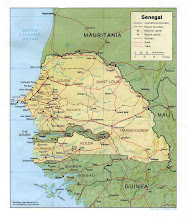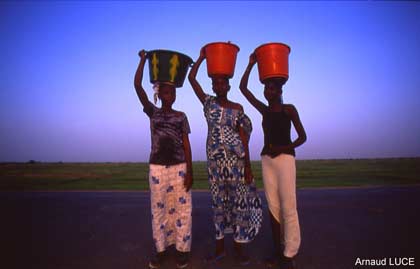A recent Economist article gives a snapshot of Senegal's political scene with a focus on President Wade... Objectively Senegal is doing pretty good, with credit going to President Wade for positive economic signs such as the Corniche expressway from the airport to downtown and decent communications infrastructure, according to the February 26 article, datelined Dakar without byline.
But the article points to troubling signs from Senegal's political society, much of which it also attributes to the President. Last year's food riots (see our previous posts), and allegations of corruption have generated "rage and frustration" among many Senegalese, according to the article.
The Economist's short article injects some heavy hyperbole: the teaser cites "authoritarian" President Wade and the article's subhead states ominously that: "President Wade will ignore domestic discontent at his peril." This should hardly be news to any politician.
And the article's "taxi-driver" level of analysis misses relevant developments: fortuitous rains and consequent good harvests combined with easing import costs (lower fuel costs) and pending IMF aid will help the country's economic discontent.
Better to sort out the political grumbling after the local elections on March 22. Institutional politics take a backseat in Senegal where personal political ties are more pronounced. That level of political dynamic is beyond the grasp of most observers (including us). And local political elections, as these upcoming, are even more parochial. The losers and disaffected factions from the local elections will make their views known sooner or later. It will take a while to sort out. We intend to be there to get a first hand sense...
Subscribe to:
Post Comments (Atom)



No comments:
Post a Comment